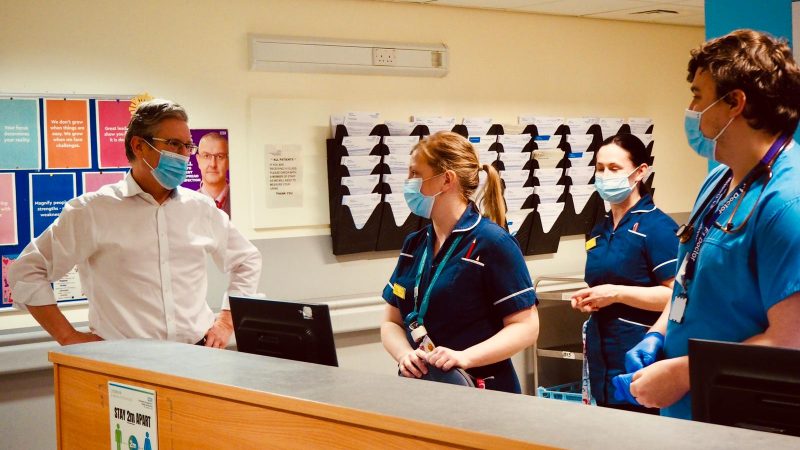
The Royal College of Nursing has announced two days of industrial action in January in what the union described as an “escalation” of its dispute with the government, which has seen members taken part in the first strikes in the RCN’s history.
The union confirmed today that members will go on strike on January 18th and 19th unless negotiations with the government are opened. The potential walk-outs follow two days of industrial action in December.
The RCN said the strikes would take place at more NHS employers in England than the earlier walk-outs – increasing the total number of trusts impacted from 44 to 55.
RCN general secretary Pat Cullen said: “The government had the opportunity to end this dispute before Christmas, but instead they have chosen to push nursing staff out into the cold again in January. I do not wish to prolong this dispute but the Prime Minister has left us with no choice.
“The public support has been heart-warming, and I am more convinced than ever that this is the right thing to do for patients and the future of the NHS.
“The voice of nursing will not be ignored. Staff shortages and low pay make patient care unsafe – the sooner ministers come to the negotiating table, the sooner this can be resolved. I will not dig in if they don’t dig in.”
Tens of thousands of nurses are thought to have walked out across England, Northern Ireland and Wales during two days of strike action this month.
A strike ballot was launched following the government’s decision in July to award most NHS staff a 5% pay rise. The union has argued that nurses should receive a pay rise of 5% above inflation.
Analysis from consultancy firm London Economics, published in November, revealed that nurses’ pay decreased by nearly twice as much as the pay of all private sector employees between 2011 and 2021. Analysts found that nurses’ pay dropped by 6% in real terms over the decade.
The government has repeatedly claimed that the RCN’s pay demand is “unaffordable”. Health Secretary Steve Barclay has argued that such a pay rise is not possible “given the many other economic pressures that we face”.
Barclay met with unions representing health workers on Tuesday ahead of this week’s ambulance strike. UNISON general secretary Christina McAnea revealed following the meeting that “nothing” had been said about pay and accused the Health Secretary of having “no room for manoeuvre”.
Nurses in Wales and Northern Ireland will not be involved in the strikes in January. Strike action by nurses in Scotland had been paused pending the result of a ballot on a revised NHS pay offer. The offer was rejected by members on Monday, and RCN Scotland announced it will confirm dates for strikes early in the new year.
Polling published by Savanta on Tuesday revealed that 54% of voters blame the government for nurses going on strike – twice the proportion who blamed the trade unions representing the nurses (27%).
The poll – released on the second day of industrial action by RCN members – found that net support for nurses going on strike over pay and conditions has risen by seven percentage points since the walk-outs were announced at the end of November, from +35 to +42.




More from LabourList
‘I was wrong on the doorstep in Gorton and Denton. I, and all of us, need to listen properly’
‘Why solidarity with Ukraine still matters’
‘Ukraine is Europe’s frontier – and Labour must stay resolute in its defence’